.jpg)
You found your new home—congratulations! It’s your biggest asset and one of the most important investments you’ll ever make. How will you keep it safe?
What risks does your property face?
Your property may have changed hands several times before you purchased it, and each previous transfer introduces new potential risks. Even new-build homes can come with liens or other title-related issues that can affect your ability to sell, mortgage, or lease your property.
These risks can be hugely expensive, and are difficult to predict. If you become the target of title fraud, for instance, there isn’t a warning. That’s why your legal professional may have recommended a title insurance policy as part of closing on your home.
What is title insurance?
Title insurance is insurance that protects your ownership of your property—your title. It’s often confused with home insurance, but they are distinctly different.
Home insurance covers the physical elements of your property—the structures and items you own. It also only provides coverage while you’re paying the monthly premiums. Title insurance has a one-time premium and coverage lasts for as long as you or your heirs have an interest in the property.
Can I still get title insurance if I already own my home?
Yes. Most homeowners purchase title insurance as part of the closing process, but if you didn’t it’s not too late. Title insurance purchased after you own your home is called an existing homeowner’s policy, and it’s essential protection against risks like title fraud.
Not protected yet? Sign up for existing homeowner coverage today.
What does title insurance cover?
Title insurance covers three types of issues: title, off-title and transactional. Here are some of the most common risks homeowners encounter in each category:
Title issues
Title issues affect the clear ownership of your property. When you try to sell, a defective title can make it impossible to legally transfer ownership of the property until it’s resolved.
- Encumbrance: a title defect where someone other than you has a claim to all or part of your property. In the context of title insurance, the most common type of encumbrance is a lien.
- Lien: an outside claim to ownership of your property to secure or collect on a debt. A mortgage is the most common lien on a property. Tax liens and builders’ liens can cause significant losses for new homeowners since liens stay with the property itself.
Off-title issues
Off-title issues include potential legal problems with a property. They often revolve around how the property can be used, or who has access to it.
- Encroachment: when something built on your property crosses into someone else’s. A common encroachment issue comes from easements, which are technically title issues but most often become problems when you encroach on them.
- Easement: an agreement to let someone use part of your property without owning it. This is common with utility companies, who often need access to properties to install and maintain equipment. If an improvement on your property encroaches onto an easement, you can be forced to remove it at your own expense.
- Zoning issues: if a municipality finds your property violates its zoning by-laws, it can force you to make expensive changes or even demolish entire structures. In Alberta, agricultural land can be at greater risk of this because farm properties often also have a home on them.
- Unpermitted work by a previous owner: the City can order you to repair or replace this type of work at your expense. Title insurance can help you save potentially huge amounts of money—we’ve seen and covered repairs in the hundreds of thousands of dollars.
Transactional issues
Transactional issues cover a variety of problems from issues with property surveys, to a lack of corporate authority, to fraud.
- Title fraud: someone steals your identity or impersonates you to get a mortgage in your name, or even sell your home from under you. A fraudulent mortgage prevents you from selling or from remortgaging the property yourself. Getting your title back can cost tens of thousands in legal fees. In B.C., if your home is fraudulently sold, the innocent buyer gets to keep it, leaving you without a home, or equity to leverage in getting a new one.
- Transfer fraud: the person who steals your identity uses it to sell the property itself. The fraudster often gains access to your property via either short or long-term rental, and uses that access to show the property to prospective buyers. The buyer is left on the hook for the mortgage cost, and title insurance may be their only recourse.
Title insurance coverage varies from province to province. Always check with your notary or lawyer to make sure you understand where you are and aren’t covered.
How much does title insurance cost?
You only pay for title insurance once—there’s no monthly premium. The cost is based on the value of your property as well as the province you’re buying in. Based on average home prices from 2021 in Alberta and B.C., $150-$350 is a common range.
Can I purchase my own title insurance?
It depends on when you get it. If you request a title insurance policy as part of buying your home, it’s actually your lawyer (or notary, in B.C.) who purchases it on your behalf. But, if you didn’t get title insurance when you bought your home, you can always purchase an Existing Homeowner Policy (EHOP) yourself later on.
Is title insurance part of Western Protocol?
Western Conveyancing Protocol (also called WCP or the Protocol) is a system the law societies in the Western provinces created to help close real estate deals faster. A Protocol closing lets the deal “close” on the closing date, even though the land title registration hasn’t happened yet. The seller can get their money and the buyer can move in without waiting weeks for the title registry.
Title insurance is separate from WCP. It offers all of the same benefits—fast closing, registration gap coverage—with much more protection for the buyer. More notaries and lawyers are relying on title insurance to cover the gaps in WCP coverage and make sure you’re properly protected, especially in hotter markets like Vancouver or Calgary.
Why do I have two title insurance policies?
This is a common area of confusion for homebuyers and property owners. There are two types of title insurance policies: lender and owner. They cover slightly different risks, but more importantly, an owner’s policy protects an owner and a loan policy protects a lender.
Check your closing documents to see if they reference an owner title insurance policy, and if you aren’t sure, reach out to your lawyer or notary.
Do I need title insurance if I have a condo or strata?
One frequent myth about title insurance is that it’s just for detached or other types of houses. But it’s just as important for strata or condominium owners. In fact, there are risks that come up more often with condos than with houses:
- If your unit also has a parking spot and/or storage unit on its title, you can suffer losses from loss of access to those spaces the same way you would for the unit itself.
- Condo boards can issue special levies, to pay for building repairs or improvements. These mandatory fees can be sudden and expensive.
Don’t put yourself at unnecessary risk. Title insurance protects you against issues that are expensive and nearly impossible to predict. For a small one-time payment, you’re protected for as long as you have an interest in the property.
You can also still purchase title insurance even if you’ve owned your property for years. Get protected today with an existing homeowner’s policy from FCT.
Insurance by FCT Insurance Company Ltd. Services by First Canadian Title Company Limited. The services company does not provide insurance products. This material is intended to provide general information only. For specific coverage and exclusions, refer to the applicable policy. Copies are available upon request. Some products/services may vary by province. Prices and products/services offered are subject to change without notice.
®Registered Trademark of First American Financial Corporation.



















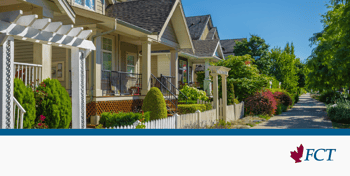





-min.jpg?width=350&height=216&name=title-fraud-homeowner-protection-blog%20(1)-min.jpg)

-min-1.jpg?width=350&height=216&name=home-theft-tile-fraud-toronto-blog%20(3)-min-1.jpg)
.jpg?width=350&height=216&name=title-insurance-bc-alberta-homeowners-blog%20(1).jpg)


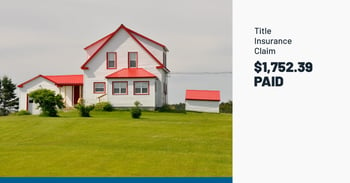
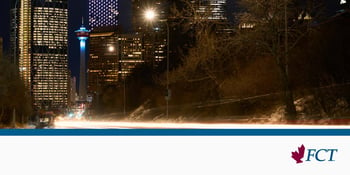
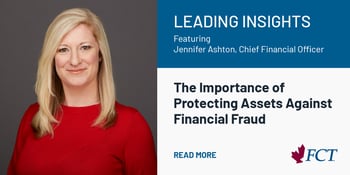





-min.jpg?width=350&height=216&name=BC-parking-claim-blog%20(1)-min.jpg)
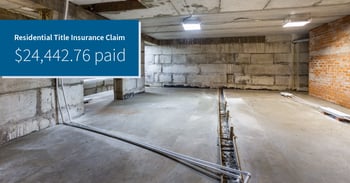



-min.jpg?width=350&height=216&name=PropTalk-what-every-home-owner-needs-to-know-Blog%20(2)-min.jpg)
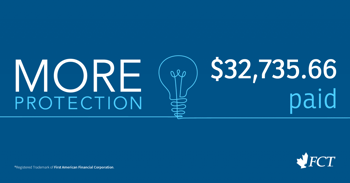

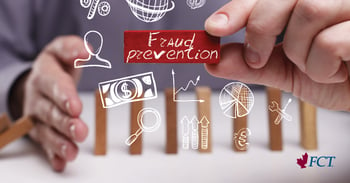

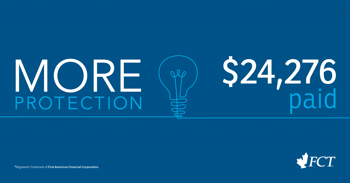

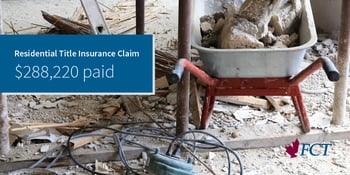





-min.jpg?width=350&height=216&name=June-28th-Were-so-Canadian2%20(1)-min.jpg)







-min.jpg?width=350&height=216&name=Blog-French-FCT-Real-Estate-Fraud_v2%20(1)-min.jpg)
